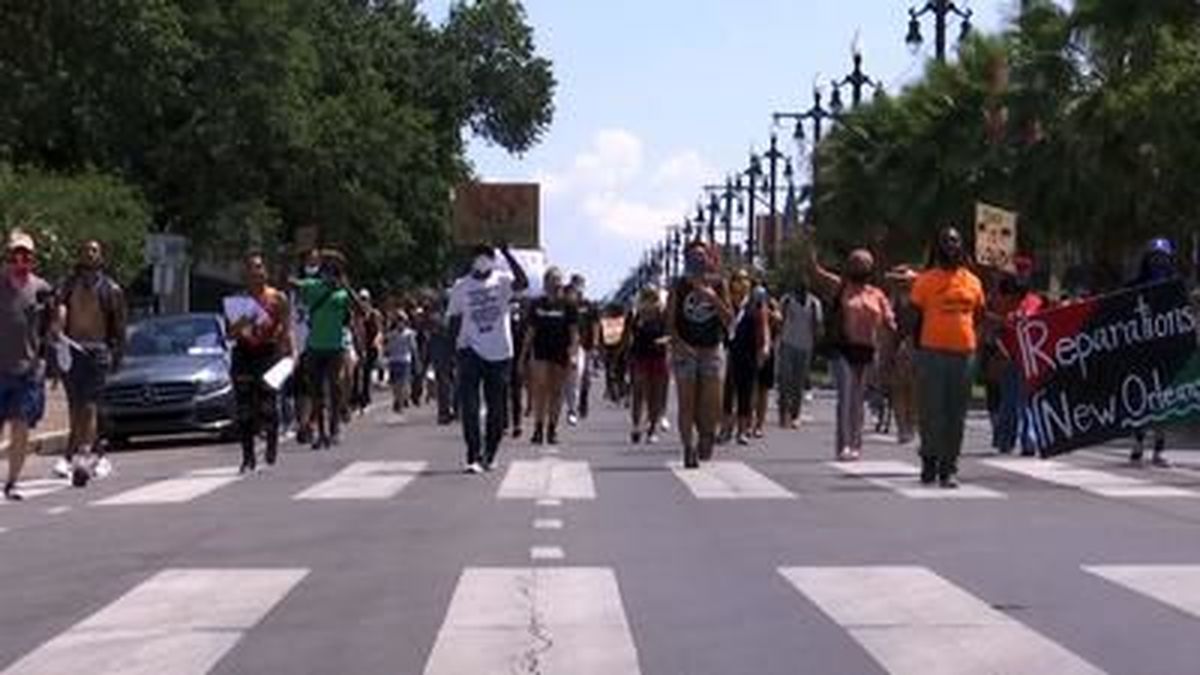Juneteenth takes on new meaning amid push for racial justice

DETROIT – Protesters marched over the Brooklyn Bridge, chanted “We want justice now!” near St. Louis’ Gateway Arch, stopped work at West Coast ports and paused for a moment of silence at the Martin Luther King Jr. Memorial in Washington, as Americans marked Juneteenth with new urgency Friday amid a nationwide push for racial justice.
The holiday, which commemorates the emancipation of enslaved African Americans, is usually celebrated with parades and festivals but became a day of protest this year in the wake of demonstrations set off by George Floyd’s killing at the hands of Minneapolis police.
In addition to traditional cookouts and readings of the Emancipation Proclamation – the Civil War-era order that declared all enslaved people free in Confederate territory – Americans of all backgrounds were marching, holding sit-ins or taking part in car caravan protests.
Thousands gathered at a religious rally in Atlanta. Hundreds marched from St. Louis’ Old Courthouse, where the Dred Scott case partially played out, a pivotal one that denied citizenship to African Americans but galvanized the anti-slavery movement. Protesters and revelers held signs in Dallas, danced to a marching band in Chicago and registered people to vote in Detroit.
“Now we have the attention of the world, and we are not going to let this slide,” Charity Dean, director of Detroit’s office of Civil Rights, Inclusion and Opportunity.
Events marking Juneteenth were planned in every major American city Friday, although some were being held virtually because of the coronavirus pandemic.
Cranes came to a standstill as longshoremen in more than two dozen West Coast ports stopped work to mark Juneteenth. In California’s Port of Oakland, political activist and former Black Panther Party member Angela Davis thanked the workers for shutting down on “the day when we renew our commitment to the struggle for freedom.”
In Nashville, Tennessee, about two dozen Black men, most wearing suits, stood arm in arm in front of the city’s criminal courts. Behind them was a statue of Adolpho Birch, the first African American to serve as chief justice of the Tennessee Supreme Court.
“If you were uncomfortable standing out here in a suit, imagine how you would feel with a knee to your neck,” said Phillip McGee, one of the demonstrators, referring to Floyd, a Black man who died after a white police officer pressed a knee into his neck for several minutes.